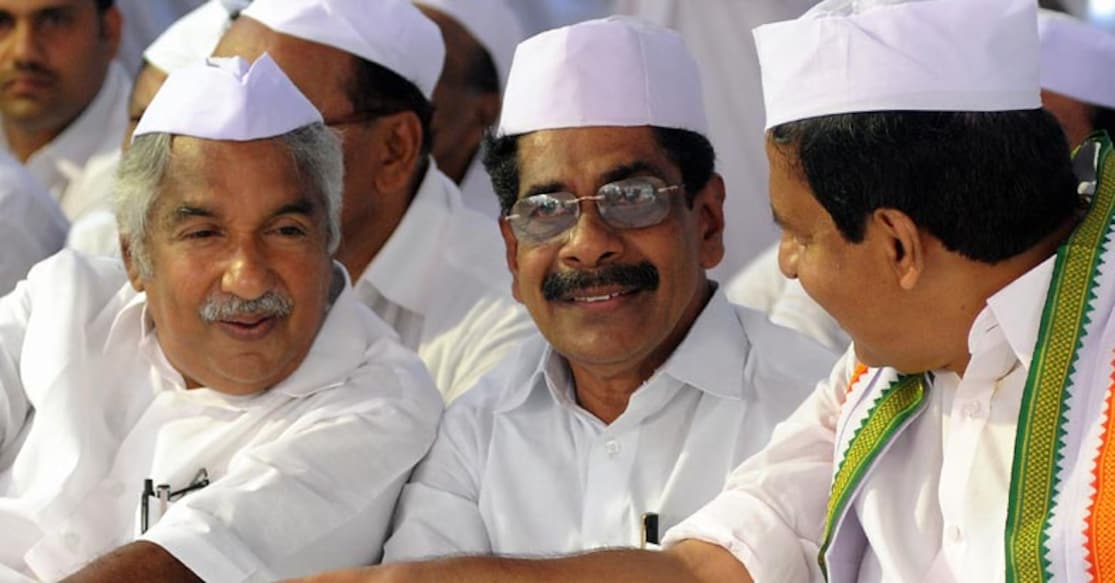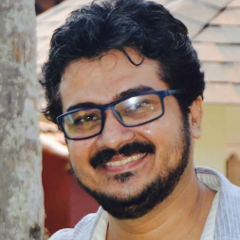Column | Congress struggles between empty state committee and overcrowded district committees

Mail This Article
The bedrock of any opposition strategy is a cohesive party organisation. Equally important is the vigour of the opposition parties' youth and student wings. The Congress-led opposition did well during the previous session of the Kerala Legislative Assembly, depriving the ruling front a chance to regale in the limelight provided by victories in assembly byelections in Vattiyoorkkavu and Konni.
However, the spirit was lacking outside the House.
The main opposition party in Kerala has been a one-man show for the past one year. Kerala Pradesh Congress Committee (KPCC) president Mullappally Ramachandran is alone at the top decision-making body of the party. Its youth wing, the Youth Congress, is also rudderless, rendering it almost inactive at a time it should have led the opposition's charges against the government.
The Youth Congress has been unable to select a new leadership for itself long after the leaders finished their term. An ensuing power struggle forced the national leadership to disband all committees of the organisation.
The Congress in Kerala has a president and two working presidents. The Youth Congress does not even have a committee. It is practically non-existent. That leaves all protests and agitation to the Kerala Students Union (KSU), the student wing with an intact leadership at all levels.
Warpath ahead
Kerala is scheduled to go for local self-government bodies elections in September 2020. Once the new local bodies are put in place in October, the countdown to the assembly election starts. The election commission would issue the assembly election notification most likely in February 2021.
In other words, both major political formations have to prepare for both local body elections and assembly election simultaneously.
Is the Congress ready for the exhaustive task? Leaders of the party and its allies in the United Democratic Front (UDF) are not sure. Mullappally recently called for a meeting of the party's district committee chiefs, because he has no other fellow office-bearer in the state committee to consult in party matters. He found the meeting so fruitful that another meeting of district committee chiefs have been called for in Kochi on December 9.
The district committee chiefs had their list of woes. Most of them presided over jumbo committees, except perhaps in Malappuram, Wayanad and Kasaragod, rendering them inefficient in taking big decisions and implementing them. Two of them, V K Sreekandan in Palakkad and T N Prathapan in Thrissur, have been elected as Members of Parliament and they have not tried to find their replacements.
Even then, the district committees expressed their willingness to launch a three-month plan locally and carry on with a fundraising drive ahead of the elections. They, however, had a request to Mullappally and Leader of Opposition Ramesh Chennithala. They did not want the state-level leaders to do the same mistakes as in the district units: that of overcrowding the party committees and making them a laughing stock before the public.
Search for a team
Mullappally is critical of a list of 60 probables to the KPCC. Curiously, he himself handed over the list to Congress president Sonia Gandhi. Mullappally is likely to have submitted the list along with a note of dissent, containing a brief description of each name on the list.
AICC general secretary Mukul Wasnik is not impressed. He does not want to vet a list which is not even approved by the people who drew it up. Will the Congress be able to set aside its factional feuds and group equations to form a smart team that could steer it through the crucial elections?
Allies including the Muslim League are keenly watching the situation. They keep reminding the Congress leaders of the ripples they were able to create by fielding good candidates in the Lok Sabha election. The choices, including the then Congress president Rahul Gandhi, pushed the Left Democratic Front (LDF) off track. Sane voices within the front argue that able and popular faces are essential in winning over the masses.
Rays of hopes are evident when it comes to the Youth Congress. The 'A' and 'I' groups of the Congress actually want to work together to strengthen the organisation. Ramesh Chennithala has made it clear that he was not against the choice of Shafi Parambil MLA, a young leader associated with the rival 'A' camp.
The probability of a consensus is a far cry from the terrible days when Youth Congress cadres led by K Karunakaran and A K Antony fought pitched street battles.
The Congress is far from being done and dusted. The question is, will it be able to rise up to the challenges of the new era.


